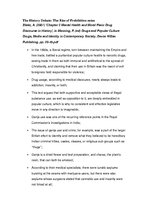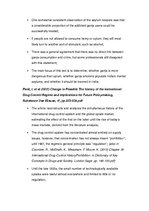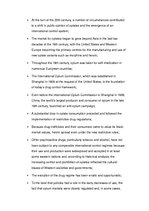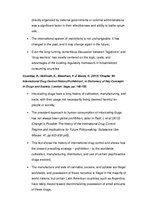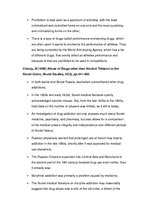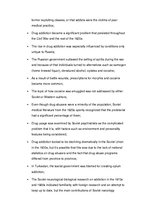-
The History Debate: The Rise of Drug Prohibition
Conroy, M (1990) Abuse of Drugs other than Alcohol Tobacco in the Soviet Union, Soviet Studies, 42(3), pp.447-480.
• In both tsarist and Soviet Russia, alcoholism outnumbered other drug addictions;
• In the 1920s and early 1930s, Soviet medical literature openly acknowledged narcotic misuse. But, from the late 1930s to the 1950s, hard data on the number of abusers was limited, as it still is today;
• An investigation of drug addiction not only exposes much about Soviet medicine, psychiatry, and pharmacy, but also allows for a comparison of the medical press's integrity and independence over different periods of Soviet history;
• Russian physicians warned that prolonged use of heroin may lead to addiction in the late 1890s, shortly after it was approved for medical use elsewhere;
• The Russian Empire's expansion into Central Asia and Manchuria in the second part of the 19th century boosted drug use even further, than it already was;
• Morphine addiction was primarily a problem caused by medicine;
• The Soviet medical literature on morphia addiction may reasonably suggest that drug abuse was a relic of the old order, a defect of the former exploiting classes, or that addicts were the victims of poor medical practice;
• Drug addiction became a significant problem that persisted throughout the Civil War and the rest of the 1920s.
…
Blake, A. (2007) ‘Chapter 2 Mental Health and Moral Panic Drug Discourse in History’, in Manning, P. (ed) Drugs and Popular Culture Drugs, Media and Identity in Contemporary Society. Devon Willan Publishing. pp. 29-45.pdf • In the 1890s, a liberal regime, torn between maintaining the Empire and free trade, battled a puritanical popular culture hostile to narcotic drugs, seeing trade in them as both immoral and antithetical to the spread of Christianity, and claiming that their use in Britain was the resort of evil foreigners held responsible for violence; • Drug usage, according to medical discourse, nearly always leads to addiction, insanity, or both; • This text argues that both supportive and acceptable views of illegal substance use, as well as opposition to it, are deeply embedded in popular culture, which is why no consistent and effective legislative move in any direction is imaginable...

